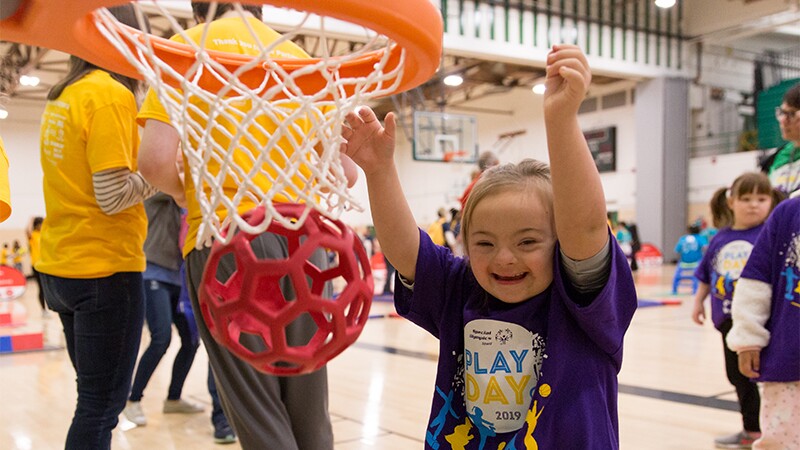Down syndrome is one of the most common types of intellectual disabilities. So it’s no surprise that each year in October we recognize National Down Syndrome Awareness Month to raise public awareness about the condition, and advocate for acceptance and inclusion of people with Down syndrome.
People with Down syndrome still face stereotypes and myths, but they’ve shown time and again that the condition is just one part of who they are and doesn’t define them or limit their abilities. That’s why it’s so important that during National Down Syndrome Awareness Month and all year long, we help spread the message of love, acceptance, inclusion, and respect.
Down syndrome is a condition in which a person is born with an extra chromosome, the packets of genes that determine how our bodies form and function. A baby is typically born with 46 chromosomes, but a baby with Down syndrome has an extra copy or part of a copy of one of those chromosomes, chromosome 21.
What is Down Syndrome?
Down Syndrome Symptoms
“Down syndrome does not define us as people. It is a condition that makes it harder for us to learn, but with patience and persistence, we are able to contribute to our society.”
The extra copy of chromosome 21 changes how a baby’s body and brain develop, which can cause mental and physical differences. The physical symptoms of Down syndrome vary from person to person, but they commonly include:
- A flattened facial profile
- Short neck, with excess skin at the back of the neck
- Small head, ears, and mouth
- Decreased muscle tone or loose joints
Down syndrome can also cause intellectual and developmental symptoms that lead to cognitive impairment, which means challenges with thinking and learning. Like the physical symptoms, they vary and can range from mild to moderate. Some common cognitive problems include:
- Short attention span
- Poor judgment
- Impulsive behavior
- Slow learning
- Delayed language and speech development
To learn more about causes and symptoms, check out our full Down syndrome resource.
Why We Celebrate National Down Syndrome Awareness Month
October was first designated as National Down Syndrome Awareness Month in the 1980s and has been recognized every October since. It is a time to celebrate people with Down syndrome and make others aware of their abilities and accomplishments.
People with Down syndrome are just like everyone else. They have similar dreams and goals, and they want to have successful careers and families. They can drive, go to work, go to college, go on dates, get married, and contribute to society.
They can also participate in sports. When Eunice Kennedy Shriver proposed the first Special Olympics, she was told harmful myths about people with Down syndrome, such as they had “negative buoyancy” and would sink in the water. Shriver made sure to include swimming in the first Games in 1968 to change people’s attitudes.
Since then, athletes with Down syndrome have exceeded in all types of sports, from swimming and gymnastics to basketball and athletics. In recent years, they’ve taken on endurance events, including the triathlon and open water swimming.
“My moments on the beach watching open water swimmers with Down syndrome are filled with profound gratitude for all the families, coaches, and communities who have encouraged, supported, and believed in the ability of these athletes and provided opportunities for them to shatter the stereotypes and show the world their amazing talents and abilities."








